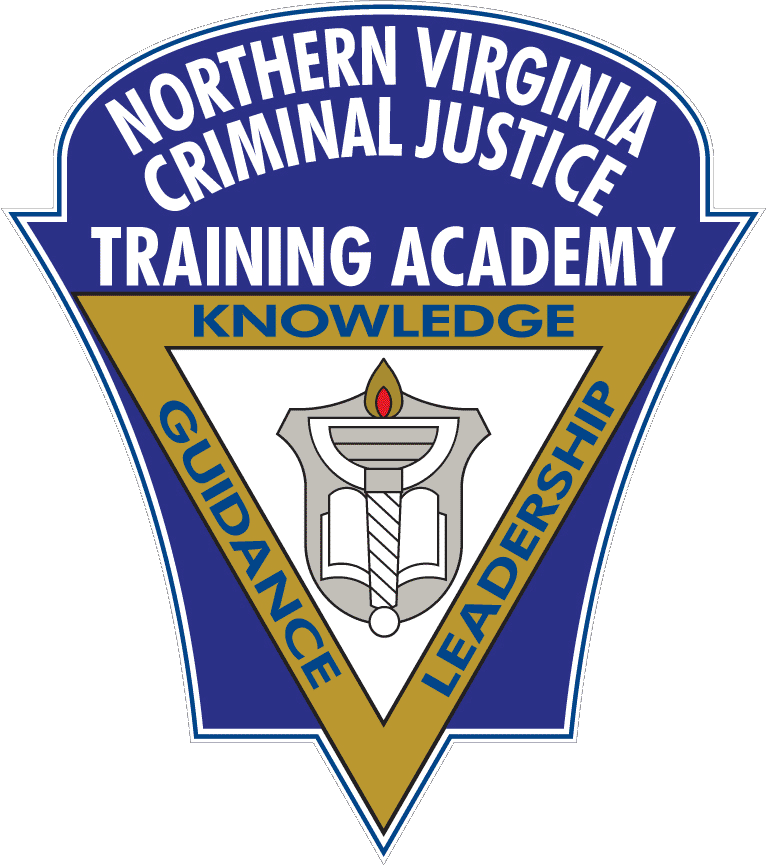Job Announcement
Basic Training Manager
Click here for more information

Northern Virginia
Criminal Justice Academy
A Nationally Accredited Law Enforcement Training Academy

Crime Guns: What Every Officer Needs To Know
Course length
About the course
Recovered crime guns can provide valuable evidence to law enforcement including investigative leads, the identification of potential witnesses and co-conspirators, the existence of additional criminal acts and even links to other shootings. This course provides an overview of the exploitation of crime gun information, including specific investigative steps and technologies available to law enforcement officer at no cost to their departments. The material is covered in two blocks.
WHERE DO CRIME GUNS COME FROM?
There is no way for a convicted felon or juvenile gang member to legally obtain a firearm. Despite this, career criminals, gang members and armed violent offenders are frequently able to illegally obtain firearms “on the street.” Attendees will learn the schemes used by firearms traffickers - criminals who are in the business of diverting firearms out of lawful commerce and onto the street. This course provides law enforcement officers with the understanding of the methods used by traffickers so they can recognize firearms trafficking when they encounter it, as well as investigative steps and resources available to help police cut off the illicit supply of firearms to criminals. NIBIN and eTrace technologies will be explained, as will investigative strategies that allow police to fully leverage these emerging technologies. This block has been updated to include detailed information on Personally Manufactured Firearms (Ghost Guns) and Conversion Devices.
FIREARMS IDENTIFICATION
Recovered crime guns can provide valuable leads and evidence to law enforcement through NCIC checks and firearms tracing, but it is critical for the officer to be able to accurately and completely describe the firearm in order to document the recovery, to enter it in NCIC, to trace the firearm, to determine if it is stolen and to testify in court. Despite the importance of this skill, few officers receive training on the identification of firearms and as a result firearms are frequently misidentified in reports, go unidentified as stolen, and are untraceable.
This interactive course provides officers with the knowledge, skills and abilities to accurately identify, describe and document firearms. Topics covered include firearms vocabulary and nomenclature, federal marking requirements for manufacturers and importers and federal firearms laws. Officers are provided numerous opportunities to identify firearms from detailed line drawings during the course. Documenting the recovery of “Ghost Guns” will also be covered.
Your Instructor: Mark Kraft
Mark Kraft has more than 30 years of Federal law enforcement experience. A graduate of Virginia Tech with a degree in accounting, he initially worked as a special agent for the IRS Criminal Investigations Division conducting criminal tax and money laundering investigations, included the successful prosecution on tax and foreign bank reporting violations of a major mole inside the CIA operating on behalf of a foreign intelligence service
He was recruited to ATF in 1987 where he conducted investigations into gun trafficking and firearms violence in the Washington DC - Baltimore corridor. He was competitively selected as member of the Baltimore Field Division’s Special Response Team, an elite tactical unit that executed high risk search and arrest warrants, from the team’s inception until his transfer to ATF’s Office of Training and Professional Development (TPD). While at TPD he designed, developed and instructed numerous firearms trafficking courses all across the United States. Working with Canadian law enforcement officials he co-wrote curriculum for and taught at the first joint ATF-Canadian firearms trafficking school, as well as several subsequent joint courses. Special Agent Kraft was ATF’s program manager for Project Safe Neighborhoods (PSN) and was personally involved in delivering PSN training to more than 20,000 law enforcement officers and prosecutors nationwide. He was awarded as the First Runner-up ATF Non-Supervisory Agent of the Year for work as the program manager for New Professional Training, the training program for all newly hired ATF agents and inspectors, during the largest wave of hiring in over a decade. He has been a guest speaker on the topics of firearms identification, firearms trafficking and gang related gun violence on scores of occasions, all across the United States, Canada, El Salvador, and Europe, including the International Law Enforcement Academy in Budapest, Hungary and the Federal Law Enforcement Training Center in Glynco, Georgia.
In August of 2006 he was selected by the Department of Justice as the inaugural Deputy Director and later as the Acting Director of the National Gang Targeting and Enforcement Coordination Center, a multi-agency task force that that coordinated investigations of the most violent national and transnational gangs across jurisdictional and geographical boundaries. In November of 2010 he returned to ATF Headquarters as a Branch Chief to establish the newly created Firearms Trafficking and Interdiction Branch, where he led the development of ATF’s firearms enforcement policy. He retired in August of 2014, having served more than 30 years in law enforcement.
He now runs Mark Kraft Firearms Consulting and Training in Burke, Virginia. He works with small teams of subject matter experts who conduct assessments of Crime Gun Intelligence Centers and assessments of police department’s investigations of nonfatal shootings on behalf of DOJ. He teaches courses on firearms identification and the exploitation of crime gun intelligence for departments nationwide.